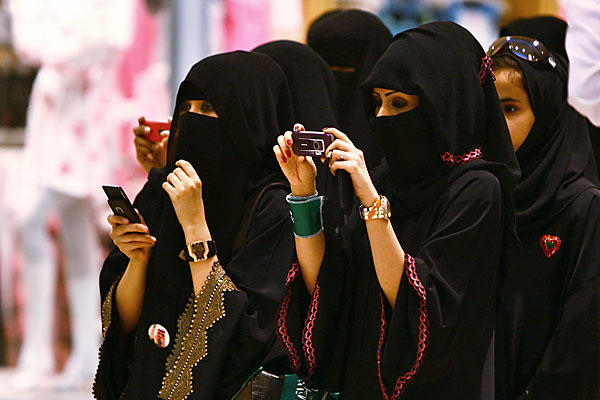Un-twisting the veil
by Qanta A. Ahmed
New York Post
September 3, 2011
http://www.islamicpluralism.org/1881/un-twisting-the-veil
[CIP Note: This op-ed was written by Dr. Qanta Ahmed in response to a disturbance at Rye Playland, an amusement park in Westchester, N.Y., on August 30, in which 15 people were arrested. The incident arose when members of a Muslim visitors' group organized by the Wahhabi-lining Muslim American Society alleged discrimination against Muslim women who were prevented from boarding rides while wearing loose, flowing hijab.]
Tangling with the Muslim headscarf is no child's play, as this week's unpleasantness at Rye Playland proved all too well. There are lessons here both for Muslims and non-Muslims.
Muslims in America are free to express their religious identity, and today often choose to do so by adopting the hijab (a headscarf that covers only the hair and exposes the face) as a badge of devotion. Ignorance in many camps has helped this become intensely polarizing.
Though headscarves have come to symbolize Muslim identity in the post-9/11 world, the Koran does not in fact specify a particular garment for veiling. Yet, in an era of rising Islamic neo-orthodoxy, such inconvenient scriptural anomalies are often overlooked by Muslims ourselves.
On the other hand, many mistake headscarves for a symbol of female oppression; in fact, they are a tool of liberation for many Muslim women -- allowing them to move freely in the public space.
While many Muslim women are compelled to wear the hijab in Muslim-majority nations (by legislation in Saudi Arabia; by community pressure in parts of Northwestern Pakistan and Afghanistan), Muslim women in America are empowered to do as they choose.
The unfortunate episode at Rye Playland highlights the intensely knotted feelings these newly iconic swathes of fabric elicit. Park operators, concerned about insecure scarves becoming entangled in ride equipment, restricted access to veiled women. Their concern, they explained, extended to all headgear -- baseball caps and kippas are equally prohibited.
I must tell you, both the hijab and the niqab (a face veil) can be quite limiting. Wearing a veil (as the law required) in Riyadh, Jeddah and Mecca, I found it certainly can impair peripheral vision. I was at risk whenever crossing a road -- and, like other less experienced veil-wearers, I found that floor-length veils often left me tripping on escalators and stairs.
Still, as The Post has reported, other amusement parks try to accommodate the scarves. Yet new reports tell us that several deaths in amusement parks have been explicitly linked to strangulation by entanglement.
The great irony here is that the appalling Rye Playland affair came immediately after the month of fasting, discipline and spiritual introspection enjoyed by observing Muslims during Ramadan. Just who provoked the scuffles is immaterial: Islam demands the Muslim fulfill a spiritually prescribed duty to society (whether Muslim or non-Muslim), in addition to our duty to God and to self.
In short, part of being a good Muslim is therefore being a good citizen -- which means not yielding to indignation and outrage as some of the Muslims in Rye did. How foolish many must feel, now that we know that Playland had warned the tour operator of its policies.
By rapidly assuming the default "victim role," they were following the lead of "Muslim advocacy" groups and witless liberal medialogues, who remain equally oblivious to our serious Islamic duties to preserve society. Yet these echo chambers, in amplifying the shrieks of entitled demands, merely create chasms between Muslims and non-Muslims.
More and more often, at the close of the 9/11 decade, claims of Islamophobia rise from both Muslims and non-Muslims. Park officials are thus miscast as a villainous, fundamental affront to Muslim identity. An incensed, hyper-reflexive Muslim American psyche predictably reacts poorly, illogically and unIslamically to authorities -- themselves antagonized by the playing of the "victim card."
Without missing a beat, the opportunist Council on American-Islamic Relations has already leapt to make accusations of "disproportionate force" without assessing the contribution of Muslims to the fracas.
Americans: Muslim or not, please don't stumble over this gnarled spin of Islam.
Now, more than ever, as Muslims we need first to understand before we seek to be understood. As Muslims in a non-Muslim-majority country, one that valiantly safeguards our religious freedom, the onus is on us -- not a park ranger, police officer or politician. Muslims must take the first steps in a direction of greater mutual insights, including more nuanced expressions of Islamic belief.
Understand: This scuffle was not about headscarves or disproportionate force. It was about disproportionate Muslim sentiments. Accepting this humiliating reality requires adult self-introspection and courage. And, as all adults know, self-introspection means sacrifice -- perhaps even missing the immediate thrill of the ride, instead trading it in for the long, slow haul towards disentangled clarity
اجمالي القراءات
2205


